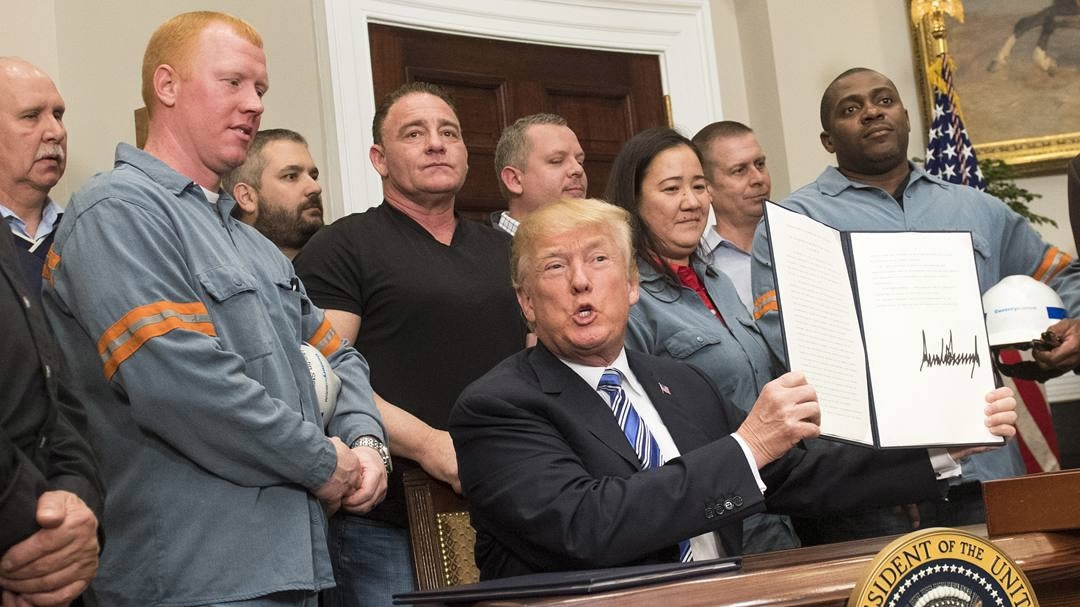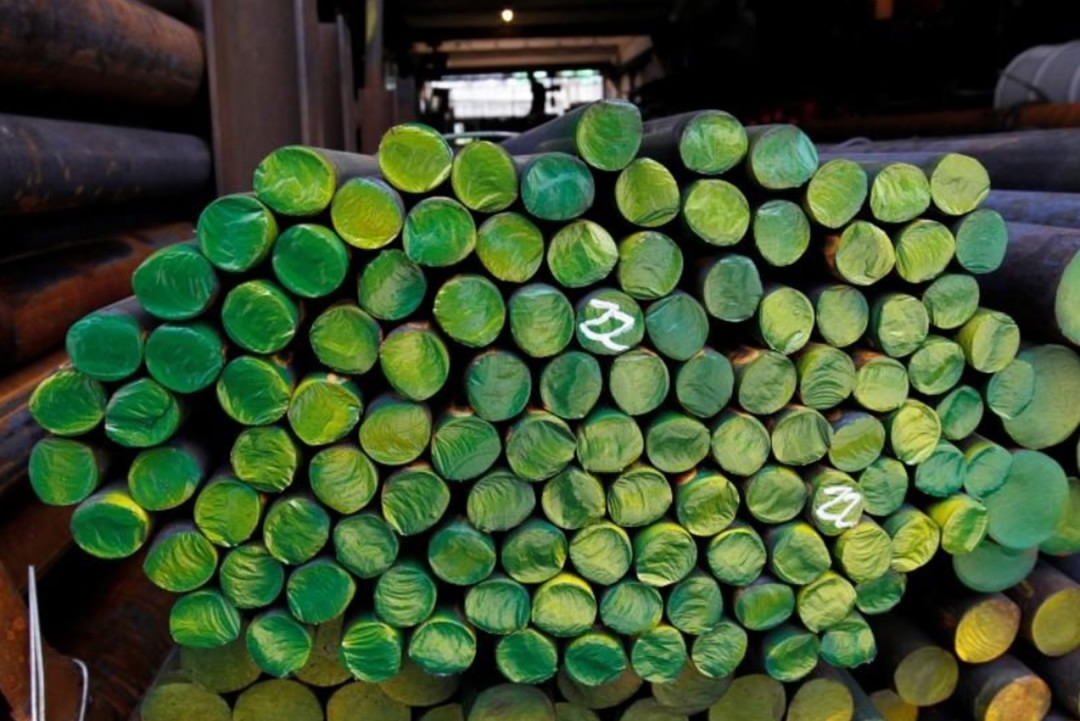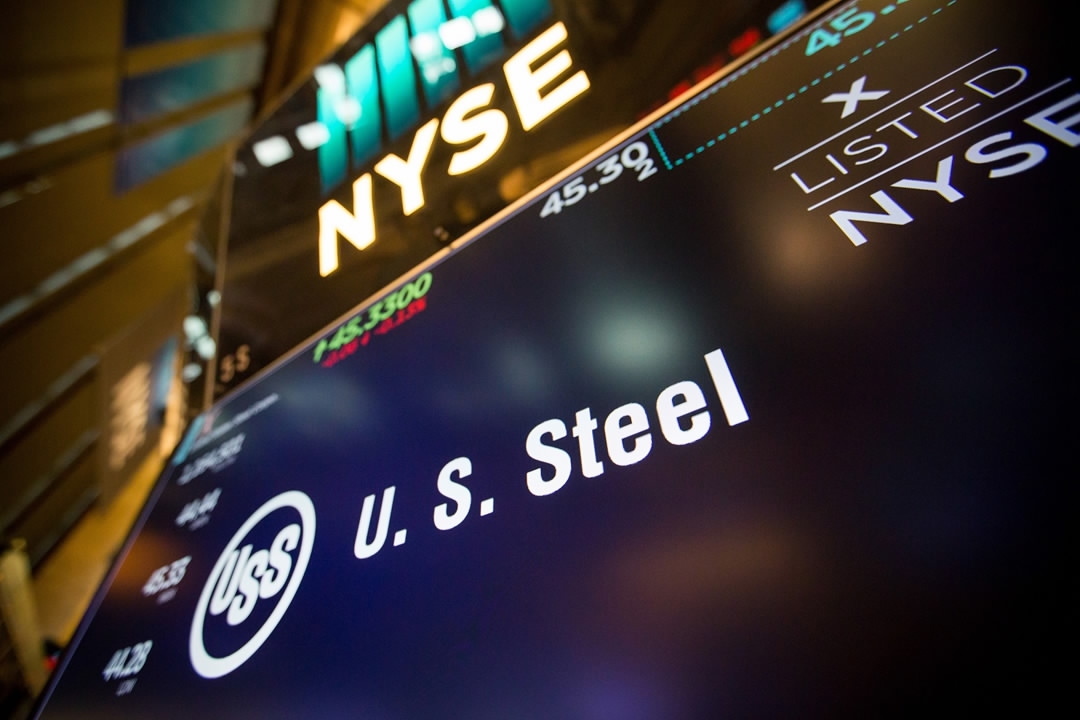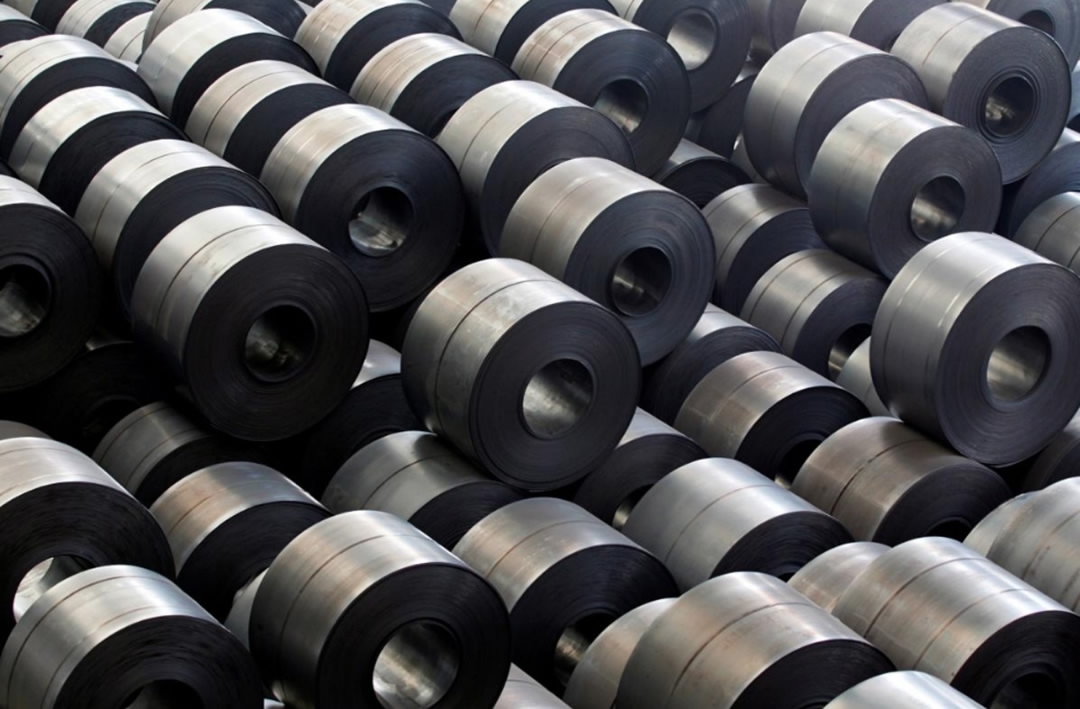
Business
08:16, 09-Mar-2018
Trump sets steel and aluminum tariffs; Mexico, Canada exempted
CGTN

President Donald Trump pressed ahead with the imposition of 25 percent tariffs on steel imports and 10 percent for aluminum on Thursday but exempted Canada and Mexico, backtracking from earlier pledges of tariffs on all countries.
Describing the dumping of steel and aluminum in the US as “an assault on our country,” Trump told a news conference that the best outcome would for companies to move here and insisted that domestic production was needed for national security reasons.
“If you don’t want to pay tax, bring your plant to the USA,” he said.
Details of the plan came from a briefing by administration officials ahead of Trump’s speech. Other countries can apply for exemptions, according to the administration, although details of when they would be granted were thin.

Steel bars for sale are displayed at a shop in the Mullae-dong steel product district in Seoul, July 13, 2010. /Reuters Photo
Steel bars for sale are displayed at a shop in the Mullae-dong steel product district in Seoul, July 13, 2010. /Reuters Photo
Trump has offered relief from steel and aluminum tariffs to countries that “treat us fairly on trade,” a gesture aimed at putting pressure on Canada and Mexico to give ground in separate talks on the North American Free Trade Agreement (NAFTA), which appear to have stalled.
Trump has also demanded concessions from the European Union, complaining that it treated American cars unfairly and has threatened to hike tariffs on auto imports from Europe.
US stocks extended gains ahead of the announcement, as the Associated Press reported key details. The benchmark Standard & Poor’s 500 index was last up 0.3 percent, but the S&P composite 1,500 steel index was down 2.7 percent.
US Treasury bonds yields rose slightly, with the yield on the benchmark 10-year Treasury note at 2.86 percent. The Canadian dollar and Mexican peso gained against the US dollar.

VCG Photo
VCG Photo
Link to NAFTA rejected
Mexico rejected any linkage to NAFTA in robust terms on Thursday. Mexican Economy Minister Ildefonso Guajardo told Reuters, “Under no circumstance will we be subject to any type of pressure.”
Canadian Trade Minister Francois-Phillippe Champagne told Reuters his country would not accept any duties or quotas from the US.
Trump’s unexpected announcement of the tariffs last week roiled stock markets as it raised the prospect of an escalating global trade war. He appeared to have conceded some ground after a campaign by legislators from his own Republican party, industry groups and US allies abroad.
The president said he was pleased with progress in the NAFTA talks, although he repeated that he would be willing to terminate the agreement. The talks were launched after Trump took office last year saying that if the pact was not negotiated to better serve American interests, Washington would leave.
Many observers take a dimmer view of the six-month-old talks, saying little progress has been made and the negotiations are stalled over issues such as autos. Car manufacturing’s contribution to the US, Mexican and Canadian economies far outweighs that of steel and aluminum production.

Rolled steel are seen at a Hyundai Steel plant in Dangjin, about 130 km (81 miles) southwest of Seoul, June 15, 2011. /Reuters Photo
Rolled steel are seen at a Hyundai Steel plant in Dangjin, about 130 km (81 miles) southwest of Seoul, June 15, 2011. /Reuters Photo
Counterstrike
Several major trading partners have said they will respond to the tariffs with direct action.
“If Donald Trump puts in place the measures this evening, we have a whole arsenal at our disposal with which to respond,” European Financial Affairs Commissioner Pierre Moscovici said.
Countermeasures would include European tariffs on US oranges, tobacco and bourbon, he said. Harley Davidson Inc motorcycles have also been mentioned, targeting House of Representatives Speaker Paul Ryan’s home state of Wisconsin.
Even as Trump threatened tariffs and prodded his NAFTA partners, 11 nations gathered in Chile to sign a landmark Asia-Pacific trade pact, one that Trump withdrew from on his first day in office.
Both Guajardo and Champagne were speaking to Reuters on the sidelines of the signing ceremony in Santiago.
Trump, who won the White House after a career in real estate and reality TV, has long touted an economic nationalism, promising to bring back jobs to the US and save the country from trade deals he views as unfair. That has put him at odds with many in his Republican Party.
Source(s): Reuters

SITEMAP
Copyright © 2018 CGTN. Beijing ICP prepared NO.16065310-3
Copyright © 2018 CGTN. Beijing ICP prepared NO.16065310-3